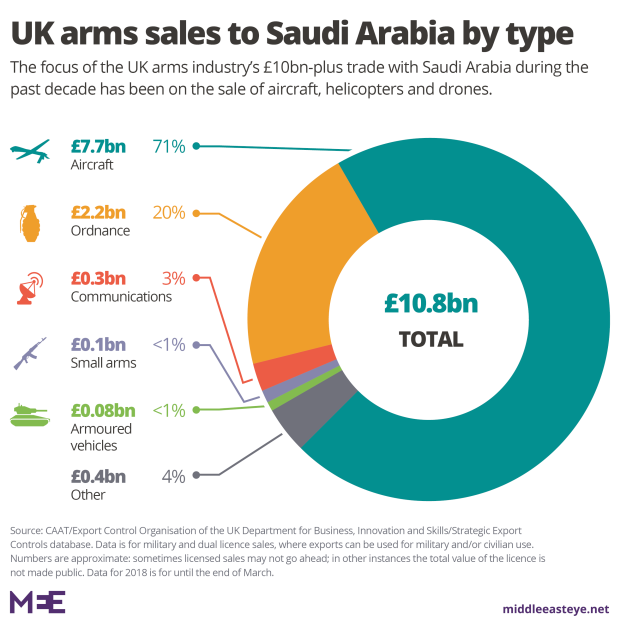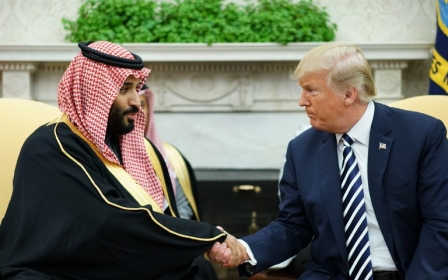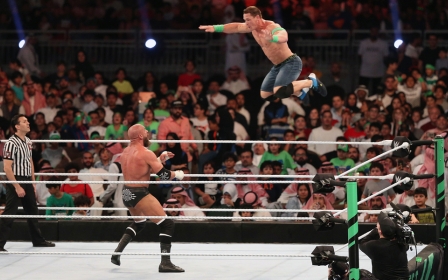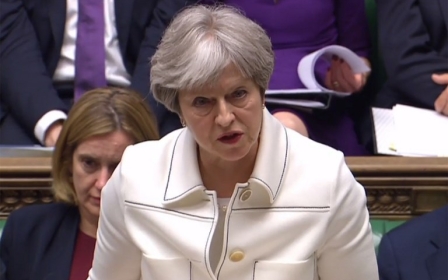France and Germany back European 'coordination' on arms sales to Saudi Arabia
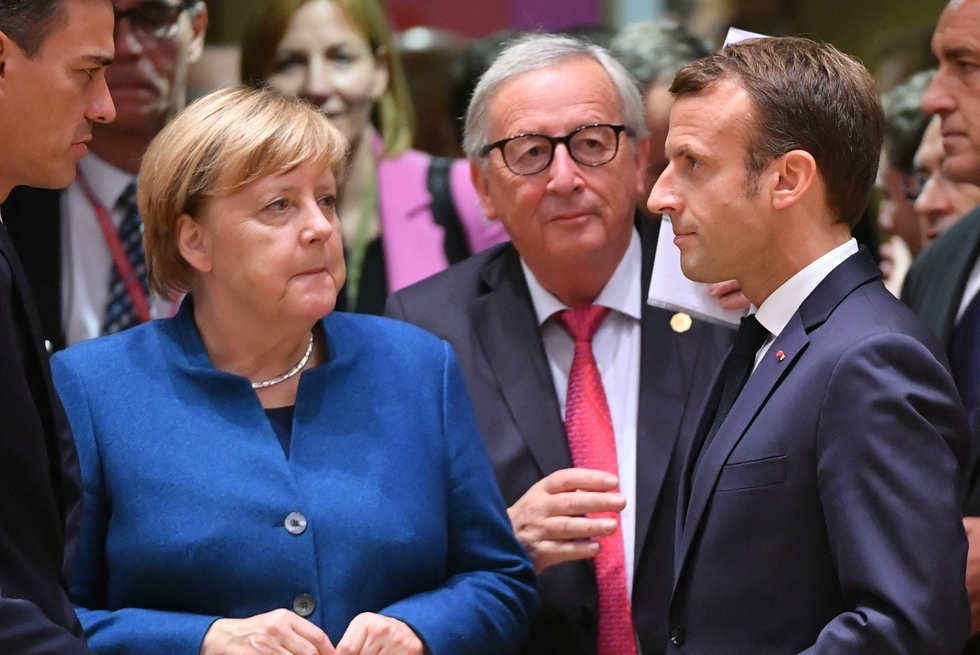
France and Germany's leaders said on Saturday that they wanted a "coordinated" European position for restrictions on arms sales to Saudi Arabia after the murder of Saudi journalist Jamal Khashoggi, according to the French presidency.
French President Emmanuel Macron and German Chancellor Angela Merkel moved to quash a rare dispute between the close European allies after Macron implied on Friday that Berlin was engaging in "pure demagoguery" after it unilaterally halted arms sales to Riyadh.
On the sidelines of a summit on Syria in Istanbul, the two leaders had a "relaxed exchange," the Elysee palace said, and agreed not to announce their next positions on the issue without first coordinating "at the European level".
Macron had previously insisted there was no moral link to be made between Khashoggi's death earlier this month and Saudi Arabia's purchase of French-made weapons.
"What is the link between arms sales and Mr Khashoggi?" he said, calling it "pure demagoguery to call for a halt" to exports over the killing.
The remark was interpreted as a rare veiled criticism of Merkel after the chancellor announced a freeze on arms sales to Riyadh over the the journalist's murder on 2 October inside the Saudi consulate in Istanbul.
Macron said that sales of weapons to Riyadh - France's second biggest customer after India - have "nothing to do with Mr Khashoggi. One shouldn't mix everything up".
The French president also said that if Saudi Arabia is to be sanctioned, "we must do so across the board".
"In that case, we should stop selling cars," he told reporters - another possible dig at Germany, a massive vehicle exporter.
Last month, Germany approved $470m worth of arms exports to Riyadh for 2018. However, Merkel said on Friday that "we need to clarify the background of this horrible crime and until that, we will not supply weapons to Saudi Arabia".
Other European countries have also been ambivalent over whether to halt arm sales to Saudi Arabia - with the Spanish parliament voting on Tuesday against blocking any such trade.
Foreign governments have issued statements of condemnation and concern in the wake of Khashoggi’s killing in the Saudi consulate in Istanbul, to which a number of close aides of Crown Prince Mohammed bin Salman have been linked.
Bin Salman, the kingdom's de facto ruler, denounced the "heinous crime" on Tuesday, while remaining defiant against critics who have called for him to step down over his suspected involvement in Khashoggi’s death.
However, Riyadh’s position as the world’s biggest arms importer has ensured a relative absence of moral boldness, with many unprepared to lose out on lucrative deals and the jobs that come with them.
Saudi Arabia was the second-biggest purchaser of French arms between 2008 and 2017, with deals totalling more than $12.5bn.
According to the Stockholm International Peace Research Institute (SIPRI), Saudi Arabia also accounted for nearly half of the UK's arms exports in 2017.
Last month, Spain announced that it was halting the sale of 400 laser-guided bombs to Riyadh - only to backtrack on the decision days later after Saudi Arabia threatened to cancel a purchase of warships worth $2bn if the bombs sale did not go through.
During the same time period, both the UK and Germany defended their respective decisions to carry on with sales of weaponry to the Gulf state, despite mounting criticism of Saudi Arabia's role in the three-year war in Yemen.
New MEE newsletter: Jerusalem Dispatch
Sign up to get the latest insights and analysis on Israel-Palestine, alongside Turkey Unpacked and other MEE newsletters
Middle East Eye delivers independent and unrivalled coverage and analysis of the Middle East, North Africa and beyond. To learn more about republishing this content and the associated fees, please fill out this form. More about MEE can be found here.


